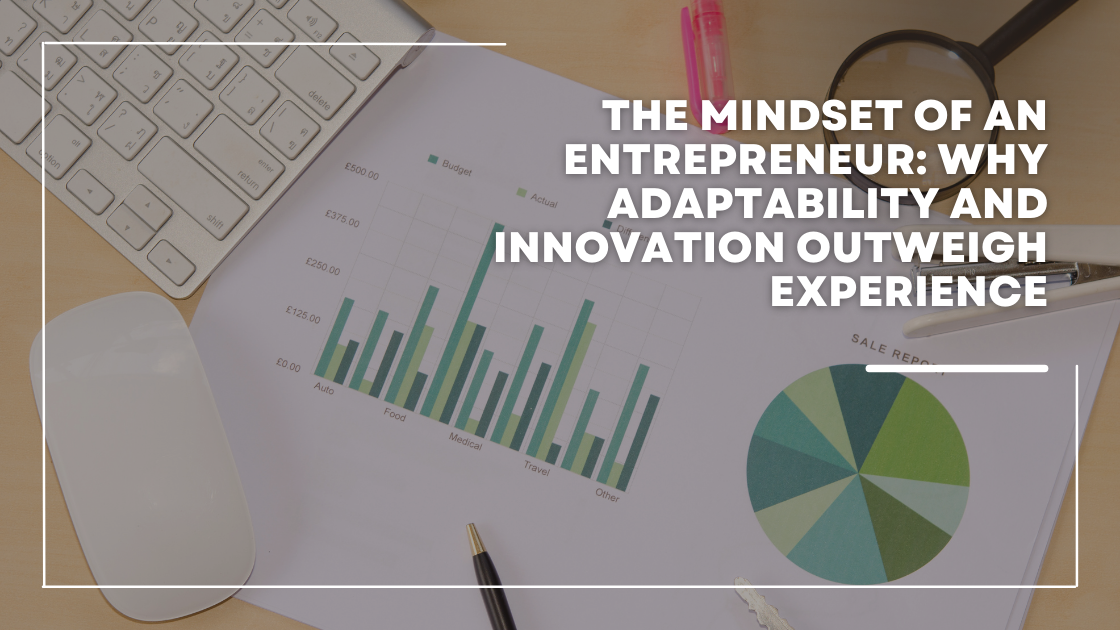When most people think about successful entrepreneurs, they often imagine seasoned professionals with years of industry knowledge and corporate experience. While experience can certainly be valuable, it is not the ultimate determinant of entrepreneurial success. In fact, history shows us that many of the world’s most impactful businesses were built not by experts but by individuals willing to think differently, adapt quickly, and innovate relentlessly. The true strength of an entrepreneur lies not in how much experience they bring to the table but in their mindset—the ability to learn, pivot, and create solutions in a world of constant change.
Experience Versus Mindset
Experience provides perspective, but it can also create limitations. Individuals who have been in an industry for decades often develop fixed ways of thinking, shaped by “how things have always been done.” Entrepreneurs, on the other hand, thrive by questioning the status quo. While experience gives knowledge of past trends, the entrepreneurial mindset focuses on future opportunities. Adaptability and innovation empower entrepreneurs to identify gaps, seize new possibilities, and take risks that experienced professionals may shy away from. In a fast-changing world, mindset outweighs experience because it drives action rather than hesitation.
Adaptability as a Core Strength
One of the defining characteristics of entrepreneurship is uncertainty. Markets shift, technologies evolve, and consumer preferences change overnight. Entrepreneurs who rely solely on past experiences may find themselves unprepared for new realities. Adaptability ensures survival and growth. The ability to quickly adjust strategies, pivot business models, and embrace new ideas is what keeps entrepreneurs relevant. Whether facing an economic downturn, a new competitor, or a disruptive innovation, adaptable entrepreneurs respond with agility, turning challenges into opportunities. In many cases, adaptability is more valuable than years of accumulated knowledge that may no longer apply.
Innovation as a Differentiator
Innovation is the lifeblood of entrepreneurship. It is not always about inventing something entirely new but often about rethinking existing systems, products, or services to make them better. Entrepreneurs who prioritize innovation stay ahead of competition by anticipating customer needs before they become mainstream. Unlike experience, which often looks backward, innovation looks forward. The most successful entrepreneurs continuously ask, “How can this be improved?” or “What’s the next big opportunity?” By cultivating innovative thinking, entrepreneurs create value that sets their businesses apart in crowded markets.
Learning by Doing
Entrepreneurship is one of the few careers where action outweighs preparation. No amount of experience can replicate the lessons learned through trial, error, and persistence. Entrepreneurs develop skills and insights by testing ideas, learning from failures, and iterating on strategies. This process of learning by doing builds resilience and confidence—qualities far more valuable than theoretical knowledge. Startups and small businesses are especially fertile grounds for hands-on learning, where adaptability and innovation often produce better results than traditional experience ever could.
The Role of Curiosity and Open-Mindedness
An adaptable and innovative mindset is deeply rooted in curiosity. Successful entrepreneurs are lifelong learners who constantly seek new knowledge, explore different perspectives, and stay open to change. Curiosity drives them to ask questions that others overlook, while open-mindedness allows them to accept new ideas—even when those ideas challenge their assumptions. Experience can sometimes create blind spots, but curiosity ensures entrepreneurs remain alert and receptive to opportunities that others may dismiss. In a world where knowledge becomes outdated quickly, curiosity is a more sustainable advantage than years of past experience.
Building Resilient Teams and Cultures
While mindset is personal, it also influences how entrepreneurs build and lead their teams. An entrepreneur who values adaptability and innovation fosters a culture that embraces experimentation and continuous improvement. In such environments, employees are encouraged to take initiative, challenge conventional wisdom, and contribute creative solutions. Teams built on flexibility and openness are better equipped to respond to market changes and disruptions. This kind of culture often outperforms teams led by leaders who rely too heavily on rigid systems shaped by past experiences.
Real-World Examples of Mindset Over Experience
Time and again, entrepreneurs with little formal experience have built transformative businesses. From tech giants started in dorm rooms to disruptive startups founded by outsiders to an industry, success stories prove that adaptability and innovation matter more than years of expertise. These entrepreneurs may not have had all the answers at the beginning, but they had the mindset to learn quickly, innovate fearlessly, and adapt constantly. Their journeys highlight a key lesson: experience might give you a head start, but mindset determines how far you can go.
The Balance Between Experience and Mindset
This is not to say that experience has no value. Experience provides wisdom and insights that can inform better decision-making. However, without adaptability and innovation, experience alone can become a barrier to progress. The most successful entrepreneurs balance both—using experience as a foundation but relying on mindset as the driver of growth. In essence, experience tells you where you have been, but mindset determines where you are going.
Conclusion
Entrepreneurship is not defined by years spent in an industry but by the mindset an individual brings to the table. Adaptability ensures entrepreneurs remain relevant in uncertain environments, while innovation allows them to create value and stand out in competitive markets. Unlike experience, which can sometimes anchor people to the past, mindset keeps entrepreneurs moving forward. The lesson is clear: in today’s fast-paced world, the entrepreneurs who thrive are not always the most experienced but the most adaptable, innovative, and willing to learn.
